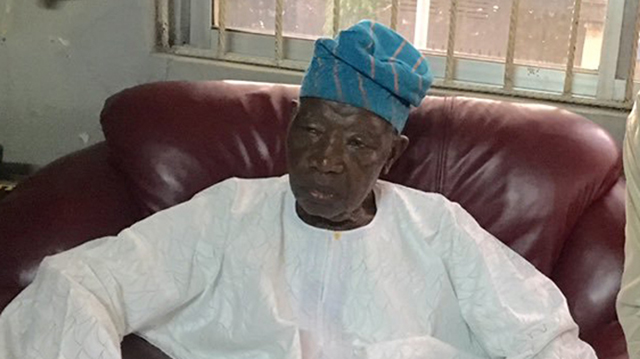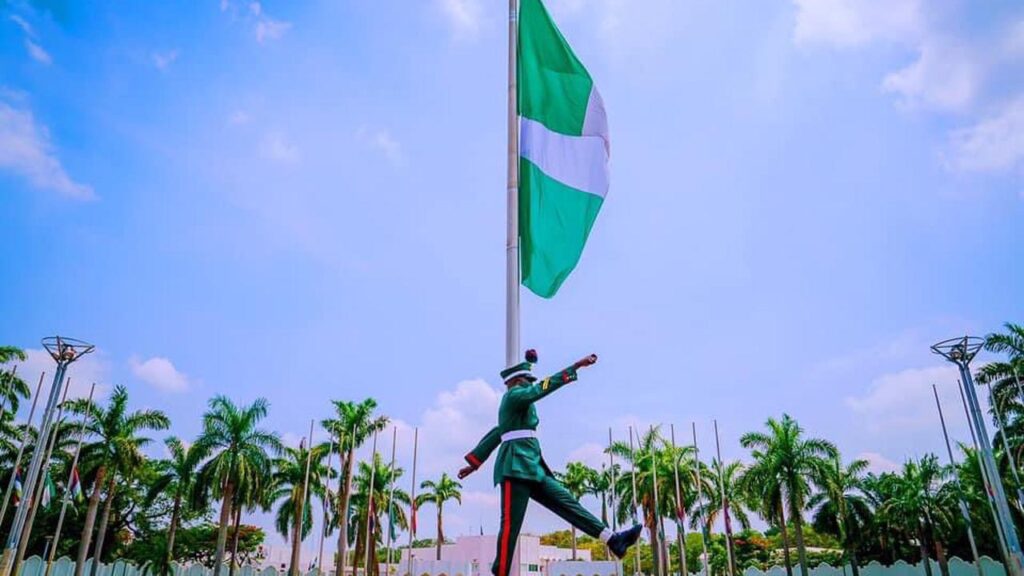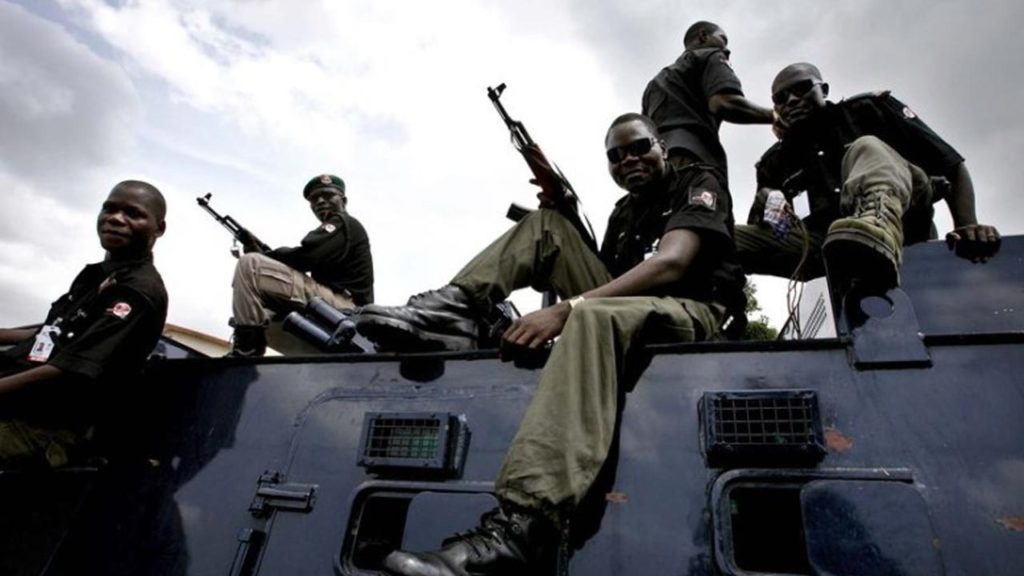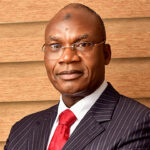
I stood rooted to the ground watching the convoy accompanying the hearse conveying the remains of Alhaji Lateef Kayode Jakande, the unmatched reference point in modern governance in Nigeria, and the poster face of fearless journalism, to Vaults and Gardens, Ikoyi. Everywhere, upon learning about the passing of the convoy and identifying it as Jakande’s, people abandoned whatever they were doing and rushed to learn his route to bid him farewell. Waving their hands, they hailed him “Jakande, Baba dada; (Jakande, the good old man); “Irin re o!”(Safe journey).
It was an outpouring of love at every bend, at every corner as the convoy departed from his Ilupeju home. Jakande left in a blaze of glory. But for the restraint, indeed, restriction imposed by the COVID-19 pandemic, Lagos would have been shut down with vehicles and crowds jostling to say good bye to an icon, a byword in governance and in journalism. I did state in July 2019 on the occasion of his 90th birthday, Jakande was an embodiment of the spirit and letters of selfless public service whether in politics, governance or journalism.
In the tribute captioned Jakande, iconic face of fearless journalism, I did state in part: “Because of his monumental achievements in politics, specifically in the governance of Lagos State, it is easy to gloss over his giant strides in journalism, his first love. It is easy for the achievements to overshadow his indelible mark in journalism. I am referring to no other than Lateef Kayode Jakande. Step forward, LKJ, and upstanding everyone, yes, every reader, and fill your glasses. We are celebrating the birthday boy at 90, the colossus of Nigerian journalism, and a bright star on the world media firmament, alias John West.
Journalism has its compelling way of shaping the vision and a new you. It cannot but be so. Journalism makes the practitioners to march in the column of the downtrodden and in the congregation of the lowly. It also throws the practitioner to swing in the circle of the high and the noble, and be at table with kings, the prime movers of the society. In the gathering of women or in the assembly of the worshippers of Bacchus, he is there to be counted, either as a participant or simply to keep company and watch. In the process, the journalist is brought to experience man, his strengths and his foibles, his peccadilloes, indeed the nature of men in general. All of this helps to sharpen gaze and shape vision, if alert, to mature him. In the end, he is imbued with idealism and this indefinable attendant restless spirit of public service: to fight, to create and to build for public good. Any wonder, they are easily worthy and celebrated ambassadors of their profession.
“Name them: Nnamdi Azikiwe, Obafemi Awolowo, Anthony Enahoro, Lateef Jakande, Bisi Onabanjo, Adamu Ciroma, and Olusegun Osoba to list only a few. Enahoro and Ciroma may not have been governors or premiers, their contributions to shaping the destiny of Nigeria are unmistakable. Enahoro it was who moved the motion for Nigeria’s independence in 1953 on the platform and on behalf of his party, Action Group, and Ladoke Akintola, also of Action Group, moved another motion in 1959 for the independence on October 1, 1960, following reforms engendered by McPherson Constitution of 1954.
“Adamu Ciroma was the pioneer editor and later managing director of the New Nigerian of old which no government—federal or state—could ignore. Nor could our leading politicians or leaders of the corporate world. Ciroma later became governor of Central Bank, and under Obasanjo, Minister of Finance.
Jakande came into journalism in 1949 with the then Daily Service as his first port of call. From there he moved to the Nigerian Tribune in 1952. Until he left in 1979 upon becoming the first civilian Governor of Lagos State since the state’s creation in 1967, the name Jakande was synonymous with Tribune. One could not think of the Tribune without the mind immediately racing to Lateef Jakande. He came to journalism sharing the philosophy of James Reston, the celebrated columnist of The New York Times who had said that because the President of the United States had too much power it was the Press that should help to counter- balance and tame him.
Jakande, an exceedingly informed and gifted editorial writer, he was unsparing in his editorials. At a time, the editorial alone was the selling point of the Nigerian Tribune. It was fierce, pungent, yet robust—researched and well argued. The editorials were compelling. It was such that legend had it that in his first coming as military Head of State, the first item to take on Obasanjo’s schedule before doing any other thing every morning was to personally read the Tribune editorial—for political education, wisdom, inspiration or unsparing condemnation. In the heady days of when General Gowon was in the saddle, Jakande said to IG Kam Salem that if the government found any of the hard-hitting, fire-spitting editorials offensive, they should leave his editors alone. It was he the government should come for.
“I recall the Tribune Editorial after the Gowon Administration was ousted, and following a report of enquiry into the stewardship of the state governors, a majority of them fell short and were dismissed, Only two, Oluwole Rotimi and Mobolaji Johnson were cleared of any abuse of office, with no trace of corrupt practices. The Tribune likened in utter disappointment one of the dismissed officers to Naaman. The said governor was outstanding and exemplary in application to duty in the service to his people and was consequently greatly liked throughout the country. He was resourceful and full of energy. His state led in every aspect of service delivery, education, infrastructural development, sports and more. The Tribune said of him after he fell, quoting from 2 Kings 5:10 and 14: ‘Naaman was a valiant soldier, but alas he was a leper.’ According to the Scriptures, Naaman was the captain of the host of the king of Syria. He was greatly esteemed by the king and Syrians because he was a man of valour who ‘brought deliverance unto Syria.’
The king was concerned Naaman’s health condition and besought Elisha the prophet to do something about it. Elisha acceded and told Naama to go to River Jordan and dip himself in the river seven times. Naaman, as celebrated figures are wont to do, pooh-poohed it and strugged his shoulders. He demurred. In the end he overcame his arrogance and did as the prophet admonished him to do, and he was healed. The point Jakande sought to bring out in his editorial was that the governor under reference had done well in his assignment in public service and was admired by all and sundry, no one suspected he could be probity-deficient.
The Tribune editorial published in February 1976, helped to rekindle my memory of what he had said to my class at the Nigerian Institute of Journalism (NIJ) some years earlier. He said to us that the rule of journalism demands that ‘a good journalist must know something about everything and everything about something!’ That Alhaji Jakande, an ardent Moslem and vast in his knowledge of the Quran, could delve so authoritatively into the Bible validates the rule he enunciated and that he was a practitioner of the credo himself.
Gay Talese says in his book on The New York Times titled The Kingdom and the Power: ‘…there was a lingering notion that The Times was not a business but a calling.’ This aptly defines The Tribune under Jakande’s watch as its Managing Director/Editor-in –Chief. The Tribune fought battles, fought for Nigeria’s independence; it took on repressive regimes and won all the battles but not without a price. During the crisis in the Western Region, the government banned the newspaper. The irrepressible newspaper, however, would neither break nor bow to evil in the spirit of its founder, Obafemi Awolowo. The newspaper still came out, and Jakande and his editor, Ayo Ojewumi, wrote editorials their strident editorials from prison with contributions from Bisi Onabanjo also in incarceration, and Bola Ige. Emiola (now emeritus professor of law) bravely got into the saddle as editor and to ensure the paper came out.
How can a person know something about everything and everything about something if he does not read widely and unceasingly? You had no place in the newsroom of the Daily Times with Henry Odukomaiya as Editor, Kunle Animashaun and Chief Theo Ola as News Editors. Odukomaiya, the editor of editors would just burst into newsroom and start a discussion on this or that book. Have you listened to BBC, VOA, and Radio Nigeria etc? Editor Sam Amuka (Sad Sam) and Aremu Alabi could be seen clutching fat books in their hands—Sam Amuka even at airport waiting for his flight! Adagogo Jaja could humiliate you in the corridor. Allah-De would deflate you with his accustomed humour if you had read that book or the London Times. They kept us on our toes. I knew from where they were coming. Jakande proved to journalists that the newsroom is a school from where you never graduate. It is reading and reading without ceasing.
How else could it have been for Jakande who had to sit at the feet of the sage, the founder of Nigerian Tribune, Chief Obafemi Awolowo, to learn and to discuss the world? In the end Jakande and Awolowo related like Siamese twins, one able to read the mind of each other. Between 1978 and early 1979 in furtherance of efforts at building his Committee of Friends that was later to transmute into Unity Party of Nigeria, Chief Awolowo was away in Maiduguri. The Federal Military Government announced a policy in Lagos that got the chief to feel uneasy. How he longed to be in Lagos to call a Press conference on the subject. Surprisingly, on getting to the airport in Lagos, he bought a copy of Tribune only to discover that Tribune had written an editorial on the subject. In content, and flow, in robustness, it was as if Jakande and Awolowo had sat down to discuss subject.
Jakande would wake up by 5.00 am and after prayers head for office opposite Niger House on Broad Street. Between 7 and 8 o’clock Jakande had read all the newspapers in the land and by 9.00am he had banged out his editorial for the next day, ready to be dictated on phone to Ibadan, or faxed. When necessary it might have to be taken down to Ibadan by road. When he closed for the day, he would head for Surulere residence of Chief Awolowo and to parklane after Chief Awolowo relocated to Apapa. Any wonder he came out in the full image of his leader and mentor—in journalism and politics. His organizational ability was breath-taking.
Jakande was president of the Nigerian Union of Journalists which he was instrumental into forming, the first president of the Guild of Editors and first President of the Newspapers Proprietors Association, a position he held until close to his election as Governor of Lagos State, handing the baton over to Olu Aboderin the chairman of Punch Newspapers. Under Jakande’s leadership in 1964, the Nigerian Press had a code of Conduct for journalists. This was revised and strengthened by Nigerian Press Organization, NPO, an umbrella body for al Media—print and electronic.
Jakande was instrumental to the founding of the Nigerian Institute of Journalism of which he was chairman, Board of Trustees. He went to Australia to recruit the first director, Mr. Keith Harris from the Age Newspapers. A widely travelled man, he was president of the International Press Institute, indeed, the first and only Black the position till date. IPI was founded in 1950 to safeguard Press freedom all over the world. It could not, therefore, have come as surprise that the battle he was waging for Press freedom and the dignity of the journalist in parts of the world, he had to do the same at home.
Mobilizing the Nigerian Press forces, he took on the battle with Alfred Diette-Spiff to restore Mr. Amakiri’s dignity. Diette-Spiff, Governor of River state, caused Amakiri’s head to be shaven because he published in his newspaper, The Observer in Benin, an unfavourable story on the governor’s birthday without his consent! Amakiri was the newspaper’s correspondent in Port Harcourt at the time. Human rights lawyers led by irrepressible Gani Fawehinmi and Dr. Olu Onagoruwa were gathered by NPAN and the Guild of Editors as their lawyers to take the matter to court. The court awarded heavy damages against the government of River State.
Jakande was not only a newspaper administrator, an editorial writer, but a columnist as well which he signed as John West. He was a reporter at large for Tribune and had solid and impeccable news sources. In 1978, he filed a report from Saudi Arabia on Hajj operations of that year and what Nigerian pilgrims faced.
The achievements of LKJ, Lateef Jakande in politics and governance of Lagos State are an open book whether in education, health, infrastructural development, and transformation. Upon being sworn in as governor, he hit the ground running. At the inauguration ceremony, he announced that education was free from then on in all the primary, secondary and tertiary institutions. Where fees had been collected, the fees should be refunded by the school authorities. Books and writing materials were supplied to pupils and students. In some schools, there were three shifts when different sets of students and pupils took turns to use the available classrooms. In a majority of cases what obtained were two shifts. He moved swiftly to build simple and functional classrooms in schools and neighbourhoods to bring schools closer to homes. The schools became models, which UNESCO applauded and recommended for several developing countries in similar situations as Lagos. His priority was to phase out the shift system so pupils and student could receive instruction without hassles. Once the objective was achieved, the plan was to upgrade the buildings and learning environment in general.
Jakande established Lagos State University (LASU) with satellite campuses in different zones of the state. Quarters were built for staffers and lecturers at Badagry for those on the main campus at Ojoo.
He established mini-water works in different districts of the state. In health, he expanded facilities by building more general hospitals in Ikorodu, Gbagada and Igando/Idimu area as examples. To ease the perennial transport problems in Lagos, he established ferry services from Festac to Marina. He started the building of a Metroline that was to ferry 500, 000 commuters a day, terminating at Yaba. The metroline was being built by Spibat, a French company chaired by Chief Michael Ibru. The damages awarded against the Nigerian government for the cancellation were enough to build the railway from scratch to finish, according to experts conversant with such a project.
Housing sprang in different parts of the state to curb the acute accommodation shortages. It was in this achievement that the miracle of Jakande phenomenon was most self-evidently disarming because it was an area thought impossible. The houses were sold on the owner-occupier basis. He set up mortgage homes to assist interested workers. Some of the red-bricks used came from Maiduguri following which he established a red-brick factory in Maiduguri along with a coconut factory as well. Roads were built and paved in all parts of the and neighbourhood throughout the state, linking Lagos with Epe through Lekki, reclaimed from the Lagoon. He established what is now known as LASMA after Federal Authorities shot down his establishment of State Police. Jakande worked, striking like lightning everywhere. It was one miracle after another.
How did he achieve this much within four years and three months at the end of which he was overwhelmingly returned in election of 1983? Before his nomination to fly the UPN flag, he had gone round all towns districts and constituencies in Lagos State. He commissioned papers aside from the knowledge of the state he garnered during his working visits to different areas. The study included funding. In the study for example, he discovered that land was allocated by government officials at Victoria Island for N80, 000 a plot. The allottees sold the land for N1million. They went for another round of allotment and sold. It became an eye-opener to him that the land in Victoria Island as an example could conveniently sell for N1million. On the basis of that he began to allot land for N1million in the zone. Neighbourhoods were made to engage their own contractors and send their names to the government. This ensured that people in the neighbourhood supervised the building of their roads. In the process, the government saved money as well. His budget was thus the first to hit the N1billion appropriation mark in the history of the state. From his administration, Lagos became the most financially buoyant state in the whole of the Federation, raking in billions of Naira every year in internally generated revenue (IGR).
Jakande, journalist, editor, publisher, and administrator per excellence lived modestly in his own house at Ilupeju, and drove his own car. He had time for the lowly, and the mighty in his house after official hours, personally jotting down notes. He read every letter posted to him and replied to all. He applied himself without reservation in the service of the people of Lagos State and Nigeria in general. He forged a bond with Borno State. There were exchanges in personnel. He and Mohammed Goni, the Governor became inseparable. The two states learned from each other. Jakande’s performance was so stupendous that President Ibrahim Babangida could not help but sound him out if he would like to be President of Nigeria. He encouraged him to thrown his hat into the ring to perform the Lagos miracle in all parts of the country. As Federal Minister of Works, he established two Housing Estates in Abuja.
Come to think of it, Jakande built the Lagos State Government Secretariat, Alausa. He established Lagos State Television and Radio Lagos. Easily the reference point in selfless service in whatever area of endeavour he found himself, whether in government or the Media where he was the poster, he was the unmatched colossus that gave his all in the service of humanity. He was all over the world as President of International Press Institute speaking for the voiceless to regain their freedom and beaming professional light in all free world.
With his departure from earthly life, Nigerians, Lagosians and the Media in particular can beat their chest that a colossus, the iconic fearless face of Nigerian and the world journalism passed this way. Our pride and delight indeed he was!!!













